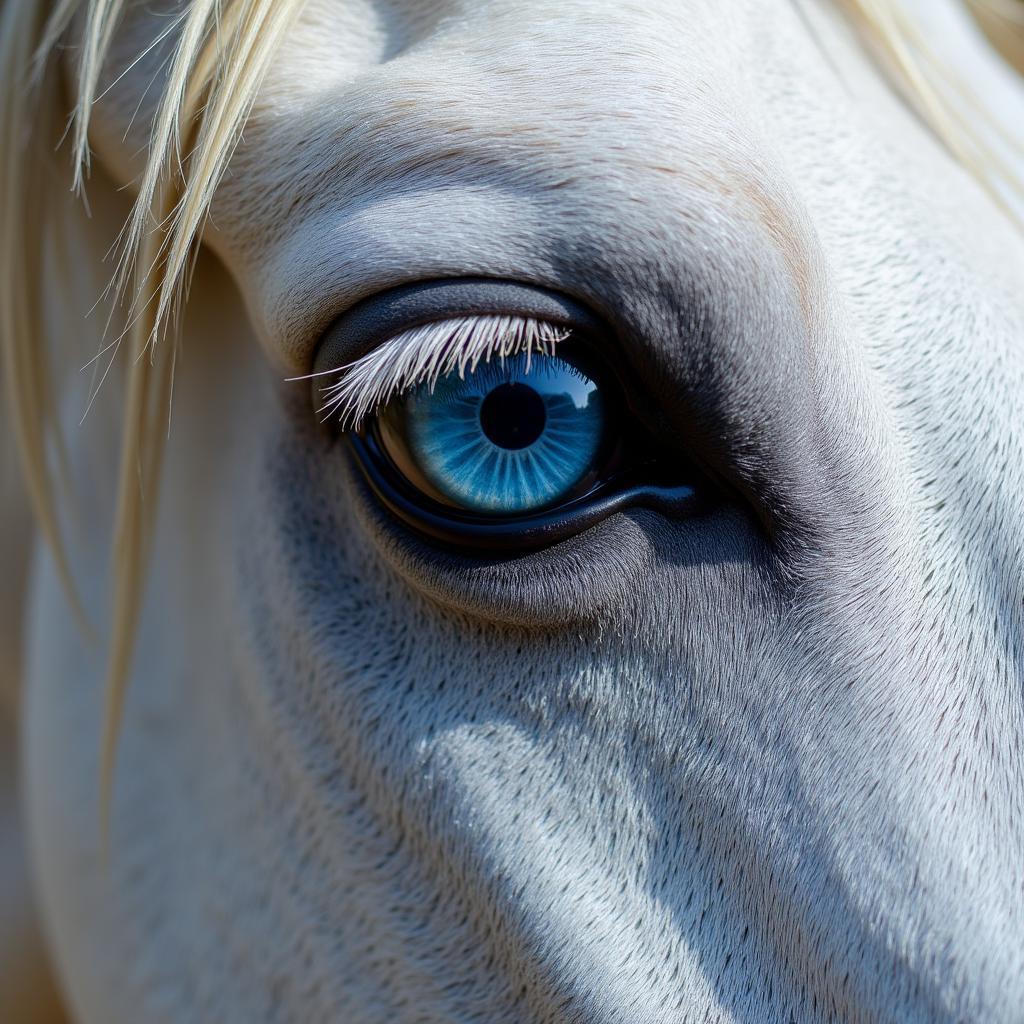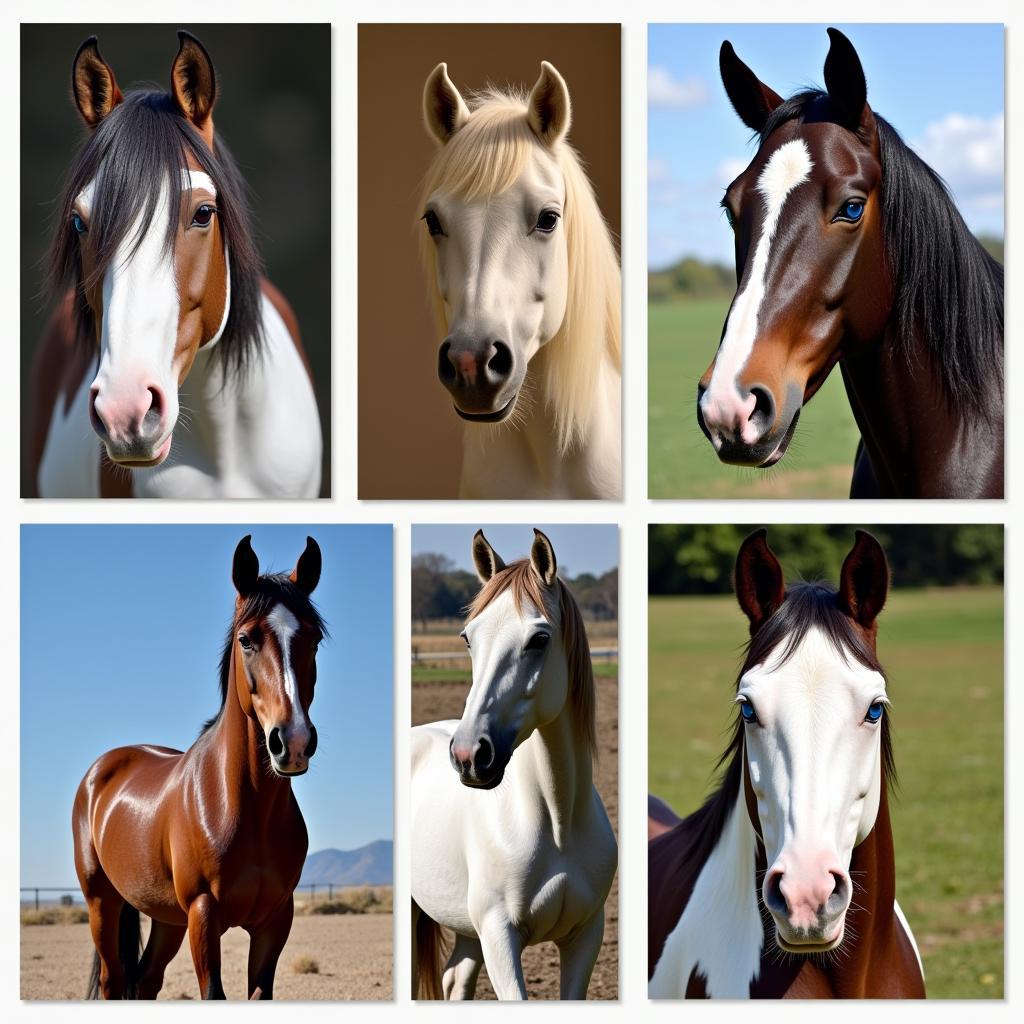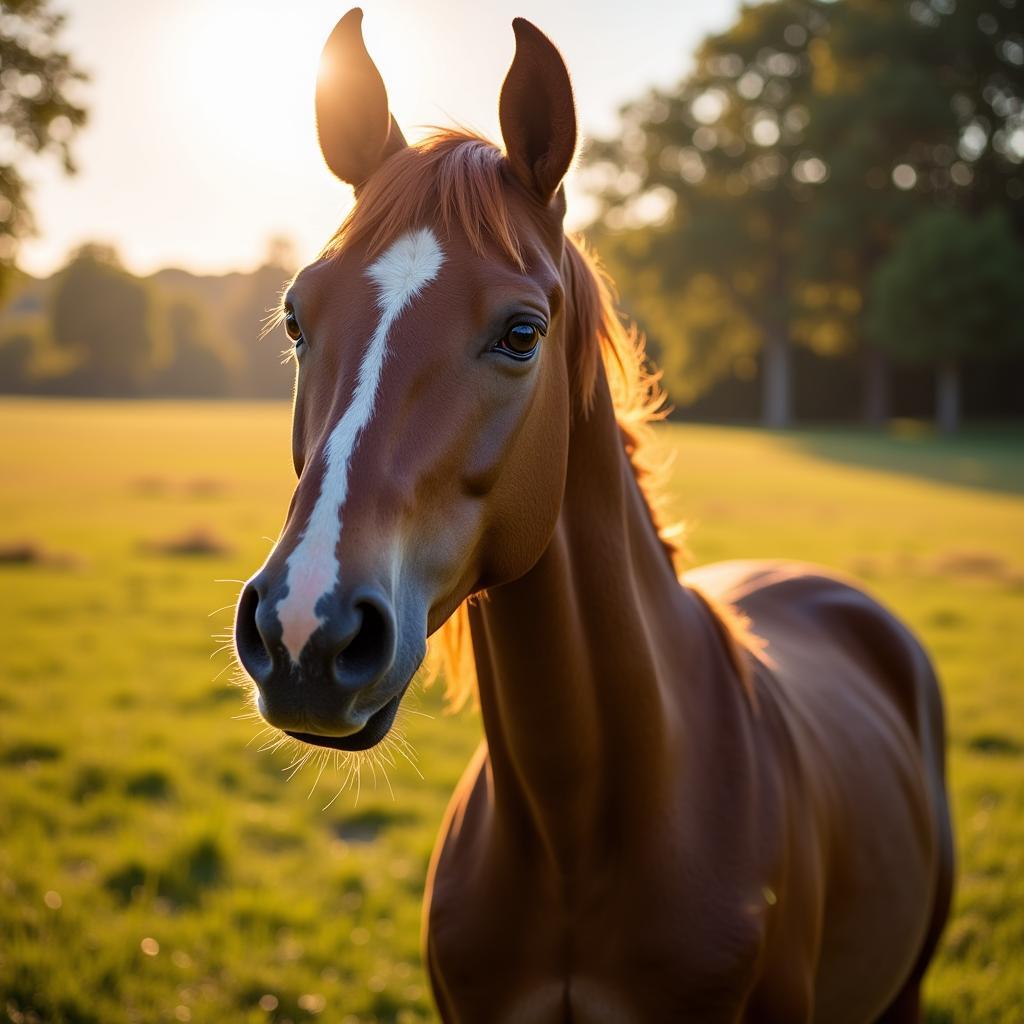Blue eyes in horses are a captivating and relatively rare phenomenon that often sparks curiosity and intrigue. While brown eyes are the norm in the equine world, certain breeds and genetic factors can lead to the stunning appearance of blue eyes.
 Close-up portrait of a blue-eyed horse
Close-up portrait of a blue-eyed horse
Genetics Behind the Blue-Eyed Gaze
The science behind blue eyes in horses lies in a gene called the KIT gene. This gene plays a crucial role in melanin production, the pigment responsible for eye, skin, and hair color. Variations or mutations in the KIT gene can result in reduced melanin production in the iris, leading to the appearance of blue eyes.
 Diverse horse breeds with blue eyes
Diverse horse breeds with blue eyes
Certain horse breeds are more prone to carrying these genetic variations, making blue eyes more common within those breeds. The Paint Horse, for instance, is well-known for its striking coat patterns and the prevalence of blue eyes. Similarly, the Appaloosa, with its characteristic spotted coat, and the majestic Gypsy Vanner, with its abundant mane and feathering, also exhibit a higher frequency of blue eyes.
Dispelling the Myths: Blue Eyes and Vision
It’s important to address a common misconception surrounding blue eyes in horses. Some believe that blue-eyed horses have weaker eyesight than their brown-eyed counterparts. However, there is no scientific evidence to support this claim. Blue eyes in horses are simply a result of pigmentation differences and do not inherently affect their vision.
Caring for Your Blue-Eyed Equine Companion
Caring for a blue-eyed horse is no different from caring for any other horse. They require the same love, attention, and basic care practices. Provide them with a balanced diet, regular veterinary checkups, proper hoof care, and a safe and stimulating environment to thrive.
 Blue-eyed horse enjoying the sunlight
Blue-eyed horse enjoying the sunlight
However, it’s essential to be mindful that horses with lighter pigmentation, particularly those with pink skin around their eyes, may be more susceptible to sunburn. Using UV-protective fly masks and providing adequate shade during peak sun hours can help protect their sensitive skin.
Conclusion
Blue-eyed horses are a testament to the remarkable diversity found within the equine world. Their captivating gaze, a result of genetic variations, adds to their allure and mystique. Remember, blue eyes in horses are simply a beautiful anomaly and do not impact their vision or overall health. Embrace the uniqueness of these magnificent creatures and cherish the opportunity to share your life with a blue-eyed equine companion.
FAQs
1. Are all blue-eyed horses white?
No, while many blue-eyed horses have predominantly white coats, this is not always the case. Blue eyes can occur in horses of various coat colors, including black, bay, and chestnut.
2. Are blue-eyed horses more sensitive to light?
Horses with lighter pigmentation, including those with blue eyes and pink skin around their eyes, may be more sensitive to sunlight and prone to sunburn.
3. Can two brown-eyed horses produce a blue-eyed foal?
Yes, if both parents carry the recessive gene for blue eyes, they can potentially produce a blue-eyed foal.
4. Do blue eyes affect a horse’s temperament?
No, eye color does not influence a horse’s temperament or personality.
5. Are blue-eyed horses rare?
While brown eyes are more prevalent in horses, blue eyes are considered relatively rare, adding to their uniqueness.
For any assistance, please contact us at Phone Number: 0772127271, Email: [email protected] or visit our address: QGM2+WX2, Vị Trung, Vị Thuỷ, Hậu Giang, Việt Nam. We have a 24/7 customer support team.